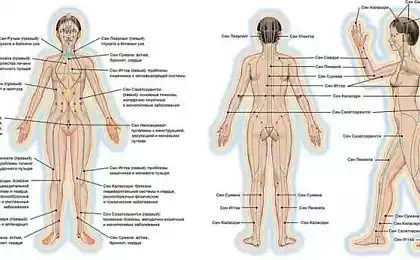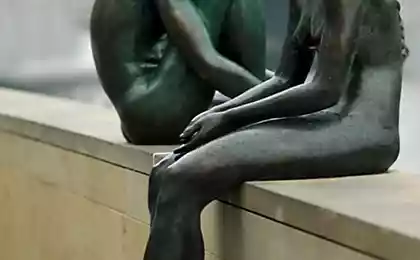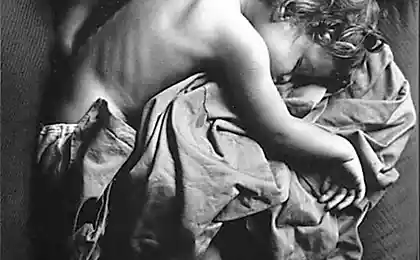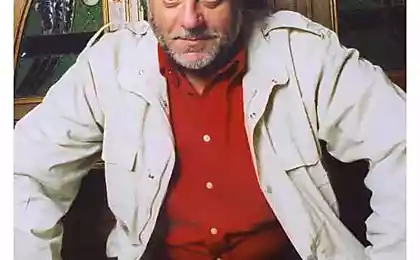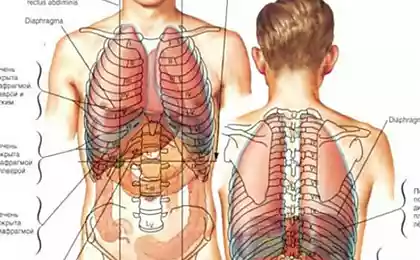189
What's called trust?
On Trust in Peace
What is called “trust” is some state of body and emotion, it is some experience that is established by a huge number of neural connections and corresponds to some muscular states. “Trust” is not a thought, it is a state of the body.
I don't understand the question, "How do I learn to trust the world?" Why should he learn to trust if he and they are not always trustworthy, especially by default? Especially if there is no solid evidence that you can trust?
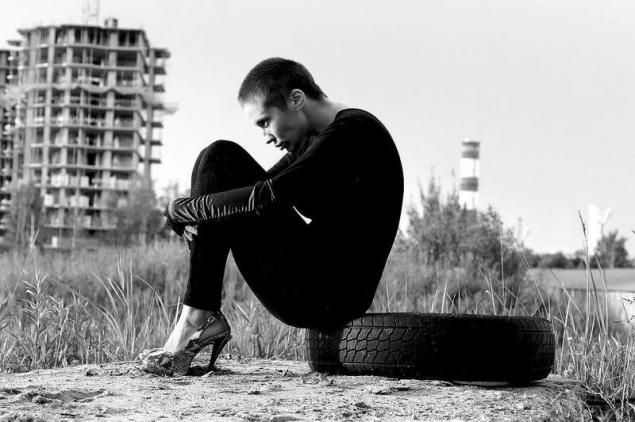
This is a really frequent question. And that’s a natural question, if you understand where his legs come from. And not to understand why and how it is possible to “trust (the world/men/substitute)” is also absolutely normal, because this misunderstanding has its legs.
And in short:
1. Learning to trust is possible (but difficult).
2. "Trust" gives a lot of buns and therefore in the household thing useful, but buns do not arise in the place where they are expected.
3. “Distrust” is a common phenomenon, to condemn or blame the bearers of such a worldview is to be a foolish Newage adept.
A little theory first. “Basic trust/distrust of the world” is something that occurs at a very early age. It is made up of the reaction of the environment to it. It is believed that this refers to the last terms of fetal development + birth + the first months of life. From how caring, warm, attentive the reaction of the environment during this period, the child learns to perceive this environment as generally friendly and safe or in principle unfriendly, unsafe or indifferent.
It's such an early structure that opinions on whether it can be overcome are sharply opposed. There are experts who say “it’s not cured,” and the only thing you can do is learn to live with it. Others (among them many practitioners) say that this is not permanent and the situation may change. As for me, I gradually change my beliefs: I also believed that this is not cured and you just need to adapt, but gradually the belief in neuroplasticity seems to force me to change my position.
Two other things are important.
I think you have already noticed that when I talk about trust, I use words that refer to two areas of our lives: mental (belief) and bodily (sensation). There are other related emotional manifestations, which I will talk about later.
Usually, we encounter this “do not believe” either at the level of thoughts and judgments (and this is really the cornerstone of the picture of the world, worldview), or very often at the level of behavior (from indecision in ordinary everyday actions to the way to have a conversation or have sex). When we discover it in others, it can surprise and hurt. When we poop at home - plunges into sadness-sadness because it is a dead end in the head and a significant limitation of opportunities. But the worst thing that can be in this place is the advice "You need to learn to trust / You need to trust / ..." Fuck you! Walk my way in my moccasins and then open your mouth!
Therefore, it is important to remember that a lack of trust (in the world, other people, etc.) is statistically normal.
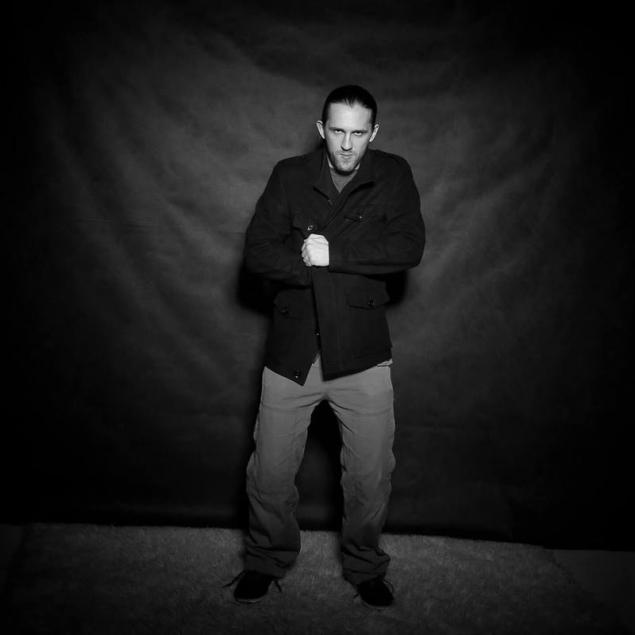
What's going on? I'll try on my fingers.
In smart language, it is an “early developmental trauma.” This is when the whole body gives out a natural protective reaction to adverse (dangerous) environmental conditions. It's such a reaction to defend itself. And it's happening simultaneously at all levels. physical (bodily), emotional and mental. Moreover, if a less mature person concludes that no one / nothing can be trusted, then the baby reacts mainly bodily (avoids contact, strains, shrinks, etc.). These are reactions at the level of the body and the simplest (basic) emotions, the main of which is fear.
The body remembers that the environment is dangerous (or at least unreliable, unstable, unpredictable or unhelpful). And so he sees it all the time as such. And reacts physically and emotionally to the surrounding reality in accordance with the assessment. In the case of early trauma, this is very early learning. In the case of hardships, the next life can also develop. When it comes to the ability to think and formulate, this is further reinforced by relevant thoughts.
Anything that happens beyond life or therapy is a chance of retraining. By the way, many would really like someone to convince them already, so that there was an opportunity to somehow trust at least something or someone, so that life would change. From this often arise all sorts of absurdities, codependent relationships and other buckets, in the end only confirming the basic picture of the world. I really do. Because Not believing means living in a dangerous environment all the time.. It requires a huge amount of strength, if someone does not understand, you get tired of it terribly. But it doesn't work otherwise.
But let’s leave these fights with healing relationships, a lot has been written about it, it’s all true, and Google to help you. I'll tell you something else.
So, a person who has a basic distrust of the world constantly perceives the world as a potentially dangerous and unpleasant place. That's how he worked. At the level of the body, this means that the brain receives a danger signal almost constantly. Yes, it is an inaccurate signal, distorted and generally incorrect. But it receives it and sends appropriate commands to the body (“run-fight-freeze”). Depending on the circumstances, all three options can be implemented, but I want to note that very often there are signs of flight and fading. And if flight is usually noticeable in situations of contact or encounter with difficulties, then fading is often read in the body. Frozenness and immobility are almost always signs of trauma in general and early in particular.
Therefore, if we talk about retraining (treatment, therapy), then the key is To teach a person not to “trust the world”, but to teach to check whether the situation is really dangerous. You're going to laugh, but this body retraining is all about testing things like resilience and breathing. Because it's only when I'm steady and breathing that the brain gets the message that everything's fine. Everything else is additional and often from the evil (brain). But if my current life is in order and (this is important!) I am constantly convinced of this, then slowly begins retraining at the levels of neural connections. And gradually I just stop feeling like the environment is always dangerous. I can find situations where it is less dangerous or even safe. That is, at the same time, neural pathways and reactions are reconstructed, the distinction between danger and safety is taught, and the habit of testing reality is developed. Because one of the main ambushes of our body (and psyche in particular) is that we are slaves to patterns and habits, to which we are accustomed and continue. And the indicative reflex is restored (he usually suffers as a result of injury).
That is, before we are habitually scared or lost, we begin to look around first, gathering information about what is really going on around us. And compare it to our preconceived fantasies about it.

It's a hard road and a long one. In this logic of retraining, comparing preliminary fantasies and schemes and current reality, many areas of therapy work. But it is important to understand that without bodily retraining, everything remains only at the level of common sense. Something begins to change only when bodily sensations and bodily reactions change. Because this run-fight-freeze thing is long before the cortex thinks. This is almost pure physiology and conditioned reflexes. And the brain can convince you of anything (e.g., “People should be trusted”, “The world is good”, “We are all connected”, etc.), and the body will do the opposite at the level of external reactions and at the level of internal chemistry and physics.
Of course, in addition to stability and breathing, there are other details that are also important and useful: the sensation of the body, its vitality and mobility, healthy reflex movements, centering and inner support (on the skeleton), the arising emotional reactions and, if possible, replaying on the physical and emotional level of various stories, etc. But without this basic physical security and the feeling of being (at the body level) existing and alive in a comfortable environment, there can be no talk of trust at all. Physiology won't allow it.
Therefore, I wrote above that you can gradually not only cope (overcome or compensate) with such a distrustful nature, but also gradually change. I don’t think it’s going to disappear, thank God. This feature has many advantages for life and especially for work. But the change and the diversity that comes with it is there.
Also interesting: How to get out of the maze of uncertainty
Why is it so hard to appreciate
And buns. They don't come directly. The ability to calmly communicate with people, to do what previously seemed unthinkable and terrible, confidence also increases, and the joys of small ones in life also increases. It's just that where you used to hide and run, you start allowing yourself to be involved and involved. It's a trifle, it adds to the nice. published
Author: Alexandra Vilvovskaya
P.S. And remember, just by changing your consciousness – together we change the world!
Source: annashaman.com/2016/06/01/%D1%82%D0%BE-%D1%87%D1%82%D0%BE-%D0%D0%B0%D0%D0%B7%D1%8B%D0%B2%D0%B0%D0%D0%B5%D1%82%D1%81%D1%81%D1%8F-%D0%D0%BE%D0%D0%B2%D0%B5%D1%80%D0%B0%D0%B0%B0%B0%D0%B0%B0%D0%B0%D0%D0%B0%D0%D0%D0%D0%B
What is called “trust” is some state of body and emotion, it is some experience that is established by a huge number of neural connections and corresponds to some muscular states. “Trust” is not a thought, it is a state of the body.
I don't understand the question, "How do I learn to trust the world?" Why should he learn to trust if he and they are not always trustworthy, especially by default? Especially if there is no solid evidence that you can trust?

This is a really frequent question. And that’s a natural question, if you understand where his legs come from. And not to understand why and how it is possible to “trust (the world/men/substitute)” is also absolutely normal, because this misunderstanding has its legs.
And in short:
1. Learning to trust is possible (but difficult).
2. "Trust" gives a lot of buns and therefore in the household thing useful, but buns do not arise in the place where they are expected.
3. “Distrust” is a common phenomenon, to condemn or blame the bearers of such a worldview is to be a foolish Newage adept.
A little theory first. “Basic trust/distrust of the world” is something that occurs at a very early age. It is made up of the reaction of the environment to it. It is believed that this refers to the last terms of fetal development + birth + the first months of life. From how caring, warm, attentive the reaction of the environment during this period, the child learns to perceive this environment as generally friendly and safe or in principle unfriendly, unsafe or indifferent.
It's such an early structure that opinions on whether it can be overcome are sharply opposed. There are experts who say “it’s not cured,” and the only thing you can do is learn to live with it. Others (among them many practitioners) say that this is not permanent and the situation may change. As for me, I gradually change my beliefs: I also believed that this is not cured and you just need to adapt, but gradually the belief in neuroplasticity seems to force me to change my position.
Two other things are important.
- First. If something went wrong in this period, and then improved, it is overcome (in early childhood it is much easier than in adulthood).
- Second In a variety of life circumstances, we can happily “degrade” to these feelings/beliefs; shock trauma (life threat), loss and betrayal, long stay in conditions that are not compatible with life – all this contributes to the emergence of a feeling and belief “don’t believe”.
I think you have already noticed that when I talk about trust, I use words that refer to two areas of our lives: mental (belief) and bodily (sensation). There are other related emotional manifestations, which I will talk about later.
Usually, we encounter this “do not believe” either at the level of thoughts and judgments (and this is really the cornerstone of the picture of the world, worldview), or very often at the level of behavior (from indecision in ordinary everyday actions to the way to have a conversation or have sex). When we discover it in others, it can surprise and hurt. When we poop at home - plunges into sadness-sadness because it is a dead end in the head and a significant limitation of opportunities. But the worst thing that can be in this place is the advice "You need to learn to trust / You need to trust / ..." Fuck you! Walk my way in my moccasins and then open your mouth!
Therefore, it is important to remember that a lack of trust (in the world, other people, etc.) is statistically normal.

What's going on? I'll try on my fingers.
In smart language, it is an “early developmental trauma.” This is when the whole body gives out a natural protective reaction to adverse (dangerous) environmental conditions. It's such a reaction to defend itself. And it's happening simultaneously at all levels. physical (bodily), emotional and mental. Moreover, if a less mature person concludes that no one / nothing can be trusted, then the baby reacts mainly bodily (avoids contact, strains, shrinks, etc.). These are reactions at the level of the body and the simplest (basic) emotions, the main of which is fear.
The body remembers that the environment is dangerous (or at least unreliable, unstable, unpredictable or unhelpful). And so he sees it all the time as such. And reacts physically and emotionally to the surrounding reality in accordance with the assessment. In the case of early trauma, this is very early learning. In the case of hardships, the next life can also develop. When it comes to the ability to think and formulate, this is further reinforced by relevant thoughts.
Anything that happens beyond life or therapy is a chance of retraining. By the way, many would really like someone to convince them already, so that there was an opportunity to somehow trust at least something or someone, so that life would change. From this often arise all sorts of absurdities, codependent relationships and other buckets, in the end only confirming the basic picture of the world. I really do. Because Not believing means living in a dangerous environment all the time.. It requires a huge amount of strength, if someone does not understand, you get tired of it terribly. But it doesn't work otherwise.
But let’s leave these fights with healing relationships, a lot has been written about it, it’s all true, and Google to help you. I'll tell you something else.
So, a person who has a basic distrust of the world constantly perceives the world as a potentially dangerous and unpleasant place. That's how he worked. At the level of the body, this means that the brain receives a danger signal almost constantly. Yes, it is an inaccurate signal, distorted and generally incorrect. But it receives it and sends appropriate commands to the body (“run-fight-freeze”). Depending on the circumstances, all three options can be implemented, but I want to note that very often there are signs of flight and fading. And if flight is usually noticeable in situations of contact or encounter with difficulties, then fading is often read in the body. Frozenness and immobility are almost always signs of trauma in general and early in particular.
Therefore, if we talk about retraining (treatment, therapy), then the key is To teach a person not to “trust the world”, but to teach to check whether the situation is really dangerous. You're going to laugh, but this body retraining is all about testing things like resilience and breathing. Because it's only when I'm steady and breathing that the brain gets the message that everything's fine. Everything else is additional and often from the evil (brain). But if my current life is in order and (this is important!) I am constantly convinced of this, then slowly begins retraining at the levels of neural connections. And gradually I just stop feeling like the environment is always dangerous. I can find situations where it is less dangerous or even safe. That is, at the same time, neural pathways and reactions are reconstructed, the distinction between danger and safety is taught, and the habit of testing reality is developed. Because one of the main ambushes of our body (and psyche in particular) is that we are slaves to patterns and habits, to which we are accustomed and continue. And the indicative reflex is restored (he usually suffers as a result of injury).
That is, before we are habitually scared or lost, we begin to look around first, gathering information about what is really going on around us. And compare it to our preconceived fantasies about it.

It's a hard road and a long one. In this logic of retraining, comparing preliminary fantasies and schemes and current reality, many areas of therapy work. But it is important to understand that without bodily retraining, everything remains only at the level of common sense. Something begins to change only when bodily sensations and bodily reactions change. Because this run-fight-freeze thing is long before the cortex thinks. This is almost pure physiology and conditioned reflexes. And the brain can convince you of anything (e.g., “People should be trusted”, “The world is good”, “We are all connected”, etc.), and the body will do the opposite at the level of external reactions and at the level of internal chemistry and physics.
Of course, in addition to stability and breathing, there are other details that are also important and useful: the sensation of the body, its vitality and mobility, healthy reflex movements, centering and inner support (on the skeleton), the arising emotional reactions and, if possible, replaying on the physical and emotional level of various stories, etc. But without this basic physical security and the feeling of being (at the body level) existing and alive in a comfortable environment, there can be no talk of trust at all. Physiology won't allow it.
Therefore, I wrote above that you can gradually not only cope (overcome or compensate) with such a distrustful nature, but also gradually change. I don’t think it’s going to disappear, thank God. This feature has many advantages for life and especially for work. But the change and the diversity that comes with it is there.
Also interesting: How to get out of the maze of uncertainty
Why is it so hard to appreciate
And buns. They don't come directly. The ability to calmly communicate with people, to do what previously seemed unthinkable and terrible, confidence also increases, and the joys of small ones in life also increases. It's just that where you used to hide and run, you start allowing yourself to be involved and involved. It's a trifle, it adds to the nice. published
Author: Alexandra Vilvovskaya
P.S. And remember, just by changing your consciousness – together we change the world!
Source: annashaman.com/2016/06/01/%D1%82%D0%BE-%D1%87%D1%82%D0%BE-%D0%D0%B0%D0%D0%B7%D1%8B%D0%B2%D0%B0%D0%D0%B5%D1%82%D1%81%D1%81%D1%8F-%D0%D0%BE%D0%D0%B2%D0%B5%D1%80%D0%B0%D0%B0%B0%B0%D0%B0%B0%D0%B0%D0%D0%B0%D0%D0%D0%D0%B
Japanese style avocado toast – fast and delicious!
Personal experience: how to awaken the hidden reserves



